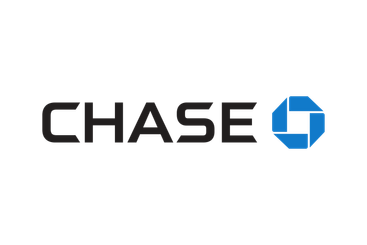In recent years, the rise of online-only banks has turned the industry on its head. With a mobile-first approach and no overheads from physical branches, these online-only banks are able to offer an array of features that more traditional banks struggle to match.
Their savvy apps with slick interfaces can help you keep track of your spending and savings, and give you a glimpse into the future of finance. Whether you're after an effective budgeting tool or an introduction to the world of FinTech, online-only banks are leading the charge towards a brighter, more inclusive financial future.
Leading Online-Only Banks – Our Top Picks
| Name | Score | Visit | Disclaimer | |
|---|---|---|---|---|
 | 8.5 | Visitstarlingbank.com | ||
 | 9.2 | Visitwise.com | ||
 | 8.5 | Visitrevolut.com | ||
 | 8.0 | Visitwww.chase.co.uk/ | ||
 | 7.4 | Visitmonese.com |
Key Information About Online Banks in the UK
🥇 Best online bank overall | Starling Bank |
|---|---|
💷 Average monthly fees | £0.00 |
🫂 Online bank users in the UK | 93% of Brits use online banks |
💸 Largest online banks by revenue | Revolut (£500m), Starling Bank ( £188m), Monzo (£154m) |
🏦 Largest online bank by customers | Revolut (25m), Monzo (5.8m), Starling Bank (3m) |
💰 Average savings account interest rate | 3.00% – 4.40% APY |
🔒 FSCS protected | Yes |
🇬🇧 Regulator in the UK | Bank of England through PRA |
The Best Online Banks in the UK Reviewed
Without further ado, let's dive into our top picks for the best digital banks and learn why we think they are a great choice for your banking needs.
Best Digital Banks in the UK At a Glance
Best All-Rounder & Best for Everyday Accounts – Starling Bank
Best for investing – Revolut
Best for saving – Monzo
Best for international transfers – Wise
Best for cashback – Chase
Best for newcomers – Monese
Stay Informed: Discover the Best Banks in the UK for 2024
Subscribe to receive updates and insights on the top online-only and high street banks in the UK. We provide balanced reviews and comparisons to help you make informed choices for your banking needs.

Starling Bank was crowned as the Best British Bank for four consecutive years – for a good reason. The app is multifaceted and feature-rich, allowing you to generate a personal payment link, send and receive money from other users via Bluetooth, open and manage joint bank accounts and digitally scan cheques.
The Spaces functionality provides ample ways to build a savings pot. You can earn interest at a rate of 0.5% AER (variable) through your pots and current account on balances up to £85,000. Although the rate is low, it’s a fine addition regardless – Starling Bank is one of the few digital banks that pay credit interest on current balances.
I’ve been using Starling Bank for a while now, and I love the ease of managing my money with the app. The ability to set up saving pots and earn interest is a huge plus for me.
The savings facilities offered by the app are not quite as versatile as Monzo’s, but it recently launched a 1-Year Fixed-Rate Saver account with an AER rate of 3.25%. The overdraft facilities also come with a representative APR of 15% (variable) compared to an average of 39.9% you’ll get from major banks.
We particularly liked Starling’s marketplace as it fully integrates with nine third-party applications spanning six categories, from mortgage brokers to investment platforms.
Pros
- Fee-free accounts with no monthly charges
- Interest-bearing savings pots and current accounts
- User-friendly app with budgeting and savings features
- Ability to set up joint accounts and track spending
Cons
- Limited in terms of credit products, like loans
- Savings rates can be lower compared to some competitors
- No physical branches for in-person support
Get started with Starling

Revolut is often in the front row with Starling Bank and Monzo. It’s technically an e-money institution rather than a bank and is regulated as such. This means that your funds will not be covered by the Financial Services Compensation Scheme (FSCS), but rather, the institution itself is responsible for safeguarding client monies.
Its account is, in essence, a basic bank account that doesn’t offer overdraft facilities, and you can only earn interest through the savings accounts (or “Vaults”, as the app puts it).
Revolut has been great for my investing needs. I enjoy having the option to buy and sell stocks directly through the app, and the low fees make it a convenient platform for trading.
One standout feature is the in-built investing platform allowing you to buy and sell shares and digital assets straight through the app. A trade per month is commission-free, but a %0.25% or £1 flat fee (whichever is higher) per trade kicks in after. Cryptocurrency trading incurs 1.99% in commission fees (min. 99p).
The fee is higher than standalone cryptocurrency exchanges, but the convenience of having all your finances in one place may still appeal to some. The app has a respectable selection of 80 coins. If you want to learn more about crypto, you can take an in-app “Learn and Earn” course, and collect rewards as you complete quizzes.
Pros
- In-built investing platform for easy stock and crypto trading
- Low fees for international transactions and currency exchange
- Multiple currency support and multicurrency account options
- Commission-free trade for one stock transaction per month
Cons
- No overdraft or loan facilities
- Fees for crypto trading can be higher than dedicated platforms
- Funds are not covered by the FSCS
Get started with Revolut

One of the leading names among digital banks, Monzo excels in saving accounts and features. The bank partners with the likes of OakNorth and Charter Savings Bank to expand its savings accounts offerings, with interest rates ranging from 1.01% to 4.0% AER – among the top rates offered by the best digital banks.
Along with Starling, Monzo is one of the few banks that offer interest on current bank account balances. Premium and Pro users can earn interest at a rate of 1% and 1.5% AER, respectively, for balances up to £2,000.
Monzo’s savings tools have really helped me stay on track with my financial goals. I especially like the creative features like the Rainy Day account and the gym rewards—it’s a fun way to save!
In addition to the now-classic round-up feature found in many online banks in the UK, Monzo offers an arsenal of innovative tools and campaigns to encourage saving behaviour. You can have your app notify you to fund your Rainy Day account whenever the temperature rises above 20°C, reward yourself by boosting your saving bot for visiting the gym, or try out the 1p challenge to save £667 without breaking a sweat.
Monzo is similar to Starling in its offering, albeit more creative in saving features (indeed, there are differences – read through our comparison for more detail). It's possible to unlock overdraft facilities, set up direct debits, freeze/unfreeze cards on the app, and open a business bank account. The paid account Business Pro offers the best value for the money compared to all the best digital banks, offering unique tools such as separating tax pots and integrated accounting with the likes of Xero or Quickbooks.
Pros
- Excellent savings accounts with competitive interest rates
- Innovative tools like Rainy Day and saving challenges
- Transparent spending insights and budgeting features
- Access to premium features like tax pots for business users
Cons
- High interest rates are limited to higher-tier accounts
- Overseas ATM withdrawal fees after a certain limit
- Limited overdraft options compared to traditional banks
Get started with Monzo
.svg)
Much like Revolut, Wise is not a bank per se, but rather a feature-rich remittance provider. Nevertheless, it offers basic banking services and impeccable terms for your overseas money transfers.
You can apply for a Wise account and debit card as a UK or EU resident, and obtain your card within six working days. The multi-currency card grants you local bank account details in numerous countries including, the UK, Eurozone, US, Australia, New Zealand, Romania, Canada, and Singapore.
I rely on Wise for international transfers. The transparent fees and competitive exchange rates have saved me money, especially when sending funds abroad. It's become my go-to for any cross-border transactions.
You can hold, deposit, and exchange up to 50 currencies. Yet, the most outstanding feature is the pure transparency of the fees. Many financial institutions, most notably high street banks, levy hefty currency conversion fees when sending or receiving money in a different currency.
It’s often a variable fee applied to the exchange rate. With Wise, you get no such thing. You may pay higher transfer fees when compared to other providers, but it usually works out cheaper when considering the hidden fees.
A Wise account has distinct advantages, but it’s not suitable as an all-around banking account. If you travel or send/receive money from abroad regularly, it can save you quite a bit in fees.
Pros
- Transparent and competitive fees for international transfers
- Multi-currency accounts with bank details in several countries
- No hidden fees on currency conversion
- Fast and reliable cross-border payments
Cons
- Limited banking features beyond international transfers
- No traditional credit products or loans available
- Withdrawal fees apply after exceeding the free limit
Get started with Wise

Considering the lack of overdraft facilities, Chase's digital current account functions similarly to a basic bank account. It does, though, include many of the bells and whistles other digital banks offer: a round-up savings account that yields interest, a versatile app offering robust money management, and no monthly fees.
The extensive cashback offers are where Chase excels – making it a great option to use for shopping exclusively. The account pays 1% cashback on all day-to-day debit card spending, regardless of the brand, only excluding high-end purchases like cars, antiques, or insurance, as well as gambling transactions.
The 1% cashback on all purchases with Chase is perfect for me. I use it for everything, and it adds up quickly. The round-up feature for savings is also a nice bonus!
Every purchase rounds up to the nearest pound, and the spare change is deposited into your savings account.
Pros
- 1% cashback on all debit card spending
- Round-up savings feature for effortless saving
- No monthly fees for account maintenance
- User-friendly app with real-time transaction tracking
Cons
- No overdraft or loan facilities available
- No overdraft or loan facilities available
- Cashback rewards not applicable on high-end purchases
Get started with Chase

What sets apart Monese is its easy digital bank account opening process. It doesn’t require a permanent UK address, nor run a credit check in any capacity – instead, it only asks for an email address, phone number, and an ID, like a passport. These make it the best bank option for travellers or those who just moved to the UK.
One of the outstanding features is the Credit Builder. It helps customers build their credit score by creating an interest-free loan that is equivalent to 12 months of savings. Users can choose to repay using a flexible monthly amount ranging from £30 to £100 over a 12-month period, which in turn will help build their credit rating.
I find Monese especially useful when I travel or need a quick account setup. The process was so simple, and the Credit Builder feature has helped me improve my credit score.
It’s open to all Monese users regardless of the plan they are on, but it comes with a monthly fee of £2.50. This means that at the end of the year, you will have a 12-month repayment history to your name in exchange for £30 a year.
There are three plans to choose from, including a free-of-charge simple plan. The main difference between the plans is the tight rules on ATM withdrawals – the basic plan incurs a 2% fee if you withdraw more than £100 per month.
Higher tiers also come with additional perks. Premium customers get some insurance benefits which cover up to £2,100 in the event of an accident, illness, or involuntary unemployment.
Pros
- Simple account setup with no UK address required
- Easy international transfers with competitive fees
- Credit Builder feature to improve your credit score
- Flexible account options with various monthly plans
Cons
- Higher monthly fees for premium plans
- Limited free ATM withdrawals compared to other banks
- No interest offered on savings or current accounts
Get Started With Monese
How We Rate & Review the Best Online Banks in the UK
To help you pick out the best online banks, we reviewed the leading options and curated the above list based on the following criteria:
Regulation – All our recommendations are regulated by the Financial Conduct Authority (FCA) and PRA in some capacity. E-money institutions like Revolut or Wise are subject to a different set of rules, whereas others follow the same regulatory framework as traditional banks.
Fees and Charges – We evaluated the fees and charges associated with each online bank, including monthly fees, ATM fees, and overdraft fees. We also looked for providers that offer fee-free or low-fee online bank accounts to help customers save money.
Interest Rates – We compared the interest rates offered by each digital bank for savings accounts, current accounts, and other financial products to help customers earn more on their savings.
Online Banking Features – We evaluated the digital banking features offered by each bank, including mobile apps, online bill pay, and bank account management tools and looked for banks that provide a user-friendly and convenient online banking experience.
Reputation and Reviews – We also looked at the reputation and reviews of each online bank to evaluate their overall customer satisfaction and reliability. For this, we considered feedback from existing customers, online reviews, and other sources to help us assess each bank's reputation.
UK’s Best Online Banks Compared
💳 📲 Accounts and services
Starling Bank | Revolut | Monzo | Wise | Chase | Monese | |
|---|---|---|---|---|---|---|
Basic account | Personal Account | Standard | Monzo | Multi-Currency Account | Chase current account | Starter |
Base currency | GBP | GBP | GBP | GBP | GBP | GBP |
No. of currencies | 3 | 36 | 1 | 21 | 1 | 3 |
Interest (AER) | 0.05% variable on Instant access | 3.00% variable on free plans | 3.40% variable on Instant Access Pot | N/A | 3.1% variable on easy access savings | N/A |
Contactless | Yes | Yes | Yes | Yes | Yes | Yes |
Google Pay, Apple Pay & PayPal | Yes | Yes | Yes | Yes | Yes | Yes |
Top-up options | Bank transfer, Cash deposits | Bank transfer, Debit/credit card | Bank transfer, Cash deposits | Bank transfer, Debit/credit card | Bank transfer, Cash deposits | Bank transfer, Debit/credit card |
Platforms | Mobile, internet banking | Mobile, internet banking | Mobile | Mobile | Mobile, internet banking | Mobile, internet banking |
💸 🫰 Fees and charges
Starling Bank | Revolut | Monzo | Wise | Chase | Monese | |
|---|---|---|---|---|---|---|
Maintenance fees | £0.00 | £0.00 | £0.00 | £0.00 | £0.00 | £0.00 |
ATM Withdrawal fees | £0.00 | £0.00 | £0.00 up to £200/m | £0.00 for 2 withdrawals/m | £0.00 | £1.5 |
Intl payment fees | 0% | 0.4%-0.5% | 0% | 0% | 0% | 1.5% |
Intl transfer fees | 0.4% | 0.3%-0.5% | 0.3%-2.9% with Wise | 0.3%-2.9% | Can't send or receive money abroad | 2.5% |
💰 💷 Borrowing facilities
Starling Bank | Revolut | Monzo | Wise | Chase | Monese | |
|---|---|---|---|---|---|---|
Credit card options | No | No | Monzo Flex | No | No | No |
Loan | Yes | No | Yes | No | Yes | Yes |
Interest (AER) | 15%, 25% and 35% EAR (variable) | N/A | 3.40% variable on Instant Access Pot | N/A | 19%, 29% or 39% EAR (variable) | N/A |
🕵️ 🔐 Security and reputation
Starling Bank | Revolut | Monzo | Wise | Chase | Monese | |
|---|---|---|---|---|---|---|
Insured amount | £85,000 | £0.00 | £85,000 | £0.00 | £85,000 | £85,000 |
No of customers | 2 million | 16 million | 5.5 million | 10 million | 1 million in the first year | 16 million |
Trustpilot reviews | 4.3 (35,173 total) | 4.3 (132,512 total) | 4.3 (26,655 total) | 4.4 (189,320 total) | 4.1 (5,024 total) | 4.1 (33,963 total) |
FCA regulated | Yes | Yes | Yes | Yes | Yes | Yes |
Introducing App-Based Banks in the UK
An online-only bank, oftentimes called a challenger bank, provides all its banking services and accounts exclusively online through mobile applications. They don’t have, nor do they need to have physical branches. All the services use automated processes and real-time updates, and offer customer service via an in-app chat feature or by phone.
21% of Brits don’t visit banks anymore
While some of us still prefer to visit branch locations, the nation gradually foregoes the habit. Over one-third hardly ever visit a bank, while only 11% do so once a year. The banking world is responding to the changing customer trends: many branches are closing down, and institutions are prioritising their digital products over in-person services.
The new generation of customers not only wishes to get their banking tasks done easily through their phone, but they also want their banks to support their financial decisions and expect helpful information and innovative features through the right channels.
Challenger banks do just that. They combine low fees with far-reaching budgeting and saving tools specifically designed to assist customers in managing their finances through a single product. The fact that these products are quite visually appealing is the cherry on top.
Online banks vs traditional banks: What are the differences?
Both traditional and online-only banks in the UK allow you to access your bank accounts online. You can perform basic tasks, like checking your balance, transferring money, or paying bills, with a few clicks.
They are both subject to the same laws and regulations: the FCA and PRA regulate all banking institutions regardless of the business model, and the FSCS covers your funds.
But even though both types of institutions serve the same purpose, there are still some important distinctions to make.
Besides providing an intuitive online experience, online-only banks also challenge the high-fee, low-yield model of high-street banks. With no physical branches and significantly lower overhead costs, digital banks are able to provide low to no-fee services and higher-than-average interest rates.
Having a bank account is a necessity, but it’s often treated as a luxury. Neo-banks challenge this notion, among other things. Many only run through a “soft” credit check and streamline the application process. Combined with lower costs, it provides a significant advantage to the under-banked and unbanked communities.
Perhaps the biggest caveat is that digital banks tend not to undertake personal loans or issue credit cards in a bid to reduce the risk.
They do, though, tend to offer marketplaces where customers can access third-party providers for such services. Starling’s marketplace, for example, provides customers with numerous mortgage, loan, and even investment providers and supports full integration of accounts.
For more options, visit our list of the best banks for mortgages.
Making the most out of online banks: What features can you use?
The prime difference between online-only banks and traditional banks is that online-only banks, as the name suggests, are designed with a digital mindset from the get-go. Meanwhile, their traditional counterparts have to go through the process of digitalisation – which can be hefty.
For this reason, challenger banks have been able to capitalise on newer agile technologies with ease and offer innovative services that traditional banks in the UK struggle to match.
Here are some of the features and services that set digital banks apart from their high-street counterparts:
Detailed spending insights to see where your money is going
Bill splitting
Fee-free spending and ATM withdrawals abroad
Multicurrency accounts, including euro and dollar accounts
Instant notifications for bank account activity
Easy sign-up process that takes less than a day
Ability to set spending limits
Junior accounts with robust parental controls
Saving pots that can be dedicated to specific goals
Behavioural limits, such as for online gambling
Future spending projections
In-app investing
Do online banks offer overdrafts?
While digital banks are not so big on borrowing facilities, you’ll find major names offering overdrafts.
The biggest distinction lies in the legal circumstances around the institution. E-money institutions like Revolut, Monese, or Wise don’t offer overdrafts – whereas licensed banks like Monzo or Starling do. And more often than not, you’ll find more favourable interest rates and comparable limits.
The biggest caveat is for students. While online-only banks offer attractive rates as well as cashback and discount offers that would benefit students enormously, none offer 0% interest student overdrafts – which, arguably, is also enormously advantageous.
There are plenty of options that offer 0% interest overdrafts — to learn more, visit our list of the best student bank accounts in the UK.
Overdraft limits & fees: A comparison
Overdraft Limit | Interest Rates | |
|---|---|---|
Starling | £1,200 | 15%, 25% and 35% EAR (variable) |
Monzo | £2,000 | 19%, 29% or 39% EAR (variable) |
HSBC | £1,200 | 39.9% EAR (variable) |
£1,200 | 35.0% (variable) |
Are challenger banks the right choice for you?
However good they may seem, online-only banks come with their own set of disadvantages. Here’s a rundown of the pros and cons of digital banks:
Pros
- Fully digitised account opening – The application and account opening process takes less than a day with the majority of digital banks. This means less paperwork and swifter turnaround times. For comparison, it takes up to a week and a half to open a basic account with HSBC.
- Superior money management – Online banks offer versatile tools to set budgets and stay on top of your spending. From goal-based saving pots to categorised spending, you can make the most out of your app to manage your income effectively.
- Low transaction and conversion fees – The biggest appeal to online banks is the low cost. Regular banking fees are cut significantly, and foreign transaction fees are below the average of what you’ll get from high-street banks.
- Real-time spending notifications and insights – The majority of online banks offer spending insights that divide your spending into categories so you can be better informed about where your money is spent. The instant spending notifications also help you keep you on your toes.
Cons
- Borrowing is limited – Only a few online banks offer overdraft facilities, especially unarranged overdrafts, and personal loans. While you can access third-party providers for such services, it will not be through the bank.
- Limited human touch – While many people stopped visiting bank branches, some still do. For those who value assistance from professionals, digital-only banks are hardly the best choice. Your options for customer support are often limited to an in-app live chat, email, or phone line.
- Reliant on internet connection and smartphones – Most of us use a smartphone and having enough data is hardly a worry, but this doesn’t necessarily apply to everybody. The fact that all your banking activities are reliant on mobile data or internet connection may be a deal-breaker for some.
- Limited cash deposits and ATM withdrawals – While many digital banks allow cheque scanning through the app, you typically need to visit a post office for your cash deposits, and many charge for this service. ATM withdrawals also have a lower limit when compared to high-street banks.
Main Things to Know About Online Banks in the UK
It could help to know the following to better understand what to expect from digital banks:
1. Your funds are safe when using online banks for up to £85,000
As we said before, digital banks are subject to the same rules and regulations as high-street banks. The Financial Conduct Authority (FCA) and the Prudential Regulation Authority (PRA) regulate any bank services to UK residents.
As per the FCA regulations, the Financial Services Compensation Scheme protects all balances for up to £85,000 in the event of banks going insolvent. Banks listed above, barring Monese, Revolut, and Wise, have banking licenses and are fully regulated as UK banks. This means that your money is protected in the same way as it would be with the likes of Lloyds, Santander, or HSBC.
Others that we list, Monese, Revolut, and Wise, are considered e-money institutions – which are still regulated by the FCA, but are not covered by FSCS directly. As per these regulations, they have to keep client funds in segregated accounts with regulated UK banks. This means that in the event of the institution going bankrupt, your funds will not be seized.
2. Online banks are not time tested
Challenger banks have been on the rise since the 2010s. Due to their digital-first business model, they have done a better job of catching up with the accelerating digitalisation that affects every industry – so much so that incumbent banks are yet to match their services.
Yet, they have some distinctive weaknesses. First off, they tend to think globally rather than locally, meaning that some services, like ISA accounts, are not widely available. They also mainly focus on retail customers and often miss out on high-worth individuals or big corporations.
But why should you care about this? It may pose a problem in the long haul for digital banks to survive financially, and only time will tell whether their business model is sustainable. In summary, these banks are not time-tested as high street banks, so their chance of bankruptcy may be higher than traditional banks.
3. You still need to pass a credit check to set up digital bank accounts with online banks
Online banks usually run a “soft” check of your credit report, unless you apply for an overdraft – in that case, it’s usually a hard check.
A hard check involves a review of your credit record, and it may affect your overall rating and eligibility. Lenders can view the hard checks you go through.
A soft check only provides banks with a view of your credit eligibility, which doesn’t affect your rating, and lenders cannot view it.
There are two main reasons why banks conduct these searches:
They check your identity – Through a credit check, banks ensure that you are the person that you say you are, and don’t impersonate someone else.
View your borrowing history – Banks may want a top-level view of your credit history so they can pre-approve any offers or show you what you are eligible for.
As we said, if you do apply for an overdraft, which some UK online banks offer, the soft check turns into a hard check. To reiterate, soft checks don’t affect your credit score, but hard checks might.
What Is a Good Credit Score?
Ever wondered how good your credit score is? Credit rating agencies in the UK have five categories for credit ratings: excellent, good, fair, poor, and very poor.
Each credit rating agency (CRA) uses a different scale to determine ratings – while they vary, the differences are usually nominal. This means that if one CTR deemed your credit rating good, there’s a high chance others will as well.
Here’s what scores look like from each of the UK’s largest CRAs:
| Equifax | TransUnion | Experian | |
|---|---|---|---|
| Fair | 380-419 | 566-603 | 721-880 |
| Good | 420-465 | 604-627 | 881-960 |
| Excellent | 466-700 | 628-710 | 961-999 |
4. You should utilise online banks to the fullest – they are great tools for systematic budgeting and staying on top of your spending
As we said before, challenger banks maintain their edge against their traditional counterparts by offering feature-rich apps that encourage and help in saving and budgeting.
To start with, they give you real-time notifications when you spend or save, which is a great help for staying on top of your finances. You also get valuable insights into your spending habits through spending insights and instant notifications. This means that you’ll be able to see how much you spend in what shop, and what category. It can help you identify your secret money suckers and build healthier spending habits.
So go ahead, explore the features, set your budget limits, categorise your spending using pots, and allocate yourself allowances for each type of spending. All these features are designed to help you understand where your money goes each month, and how can you manage it more effectively.
Should You Switch From Your Traditional Bank?
The widespread adoption of app-based banks demonstrates people's eagerness for simpler and more accessible financial management. However, it's important to carefully consider before fully switching to this relatively new banking concept.
One of the greatest assets that online banks in the UK have is their easy account opening processes. Unlike high street banks in the UK, many complete the procedure within the same day. This allows you the flexibility of using one or more app-only banks in addition to your traditional bank account.
This way, you can have the advantage of robust money management features and low-cost overseas transfers, and rely on your traditional bank for services they lack, including more advanced banking facilities like overdrafts or loans.
Despite significant advancements with app-only banks, no single online bank currently offers all the features that you may need throughout your lifetime.
To put your options in perspective, visit our best UK banks guide – we evaluated both online and high-street banks together to help you make a decision.
FAQ
Which online-only bank is the best?
Are digital banks any good?
Can I make international payments with online-only banks?
Can I deposit cash into an online-only bank?
What are the safest online banks in the UK?
Conclusion
Choosing the best UK digital bank depends on aligning the bank’s strengths with your personal financial goals. Whether you’re focused on daily spending, saving, investing, or international transfers, knowing your priorities is key. Look for transparent fee structures, strong customer feedback, and practical features like budgeting tools and savings options. It’s also essential that the bank is authorised by the Financial Conduct Authority (FCA), offering protection for eligible deposits up to £85,000.
Starling Bank stands out as a well-rounded option, consistently praised for its intuitive app, simple account setup, and mostly fee-free services. Features like flexible ‘Savings Spaces’ and interest on balances cater well to both everyday money management and longer-term savings. As a fully licensed and FCA-regulated institution, Starling offers both innovation and security. For UK users in search of a reliable and modern digital banking experience, it’s a top choice.






.jpg)
.jpg)



